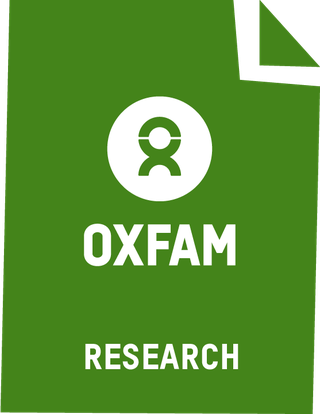
Can Haiti's Peanut Value Chain Survive US Generosity? Political economy analysis
Research by PAPDA (the Haitian Advocacy Platform for Alternative Development) and Oxfam found that peanut value chain actors in Haiti face a number of serious constraints, including nonexistence of state support; weak organization; use of traditional production methods; and lack of access to irrigation and inputs, including herbicides to control aflatoxin, all in a context of poverty and vulnerable livelihoods. Most of those interviewed have peanut-related earnings insufficient to cover living expenses. However, most expressed satisfaction with their value chain activities. Women in particular reported achieving a measure of economic empowerment, despite limited earnings. With the right policies and agricultural programs, Haiti has the potential to achieve self-sufficiency and pursue export opportunities.
The US peanut value chain, in contrast, features highly subsidized production, precision technologies, and politically well-organized farmers who engage in unabashed rent seeking. This leads to overproduction and pressures to develop foreign markets and use peanuts in food aid, such as the 2016 donation of 500 metric tons of dry roasted peanuts to Haiti. But such surplus dumping is incoherent with longstanding US agricultural aid aimed at boosting Haitian peanut productivity and overcoming severe aflatoxin issues.
The paper recommends that the Haitian government provide significant support to the peanut value chain. It encourages the United States and other donors to continue providing aid to Haitian peanut production, while avoiding agricultural trade policies that undermine such assistance.
- Download Can Haiti's Peanut Value Chain Survive US Generosity? Political economy analysis
- Download French version - La filière de l’arachide en Haïti peut-elle résister au « don » des États-Unis ? Analyse d’économie politique
- Download Haitian Creole Version - Eske Filyè Pistach Nan Peyi Dayiti Kapab Rive Twoke Kòn Li Ak Don Peyi Etazini Ap Fè Li?
